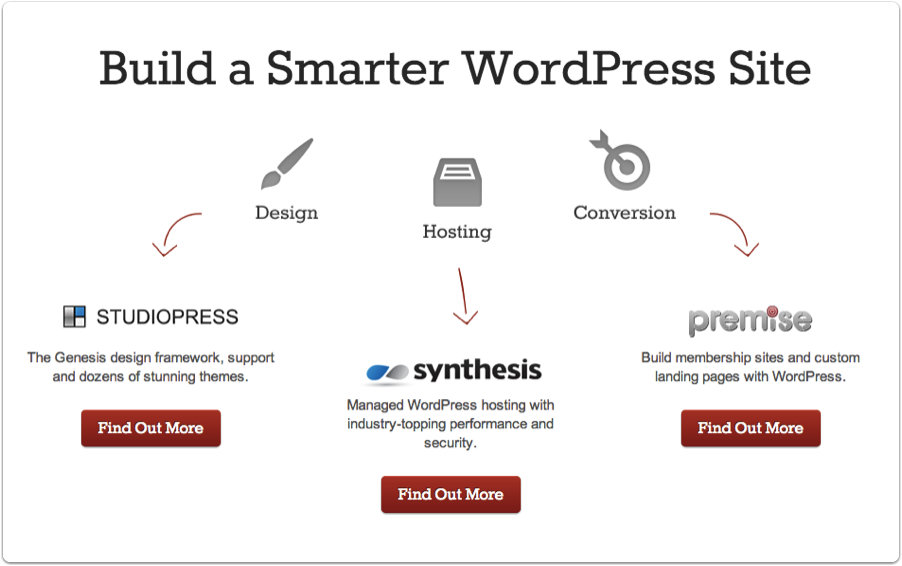ProBlogger: Making Money Online – The NEW Standard |  |
| Making Money Online – The NEW Standard Posted: 15 Mar 2013 07:45 AM PDT A Guest contribution from Nick Thacker from www.LiveHacked.com. I've been a leech for most of my life. By "leech," of course, I mean I've basically existed online as the type of person who consumes considerably more than I've created. But this year things changed. I was, and still am, a student of the Internet age, and I hope to always be. But in January of 2012, I decided to begin giving back to the world that's educated me for the past ten years. I started a blog and focused on asking the right questions, rather than finding the right answers. At first it was a simple "living better" blog, through which I would provide the little "hacks" here and there that helped me get more done, live better, and generally enjoy life to the extent we should. After a short while, though, things started leaning more in the direction of "helping writers write better, and sell more books." Actually, our catchphrase right now is "On living and writing well," and we've (in my mind) lived up to that mantra quite well. For me, this blog post is a reflection of my blog's transition from a moneymaking blog that makes money through helping people to a blog that helps people and generates income on the side. The difference is in some ways minute; semantic even, but the implications are major: I have been experiencing the "new standard" of making money online in the current world we live in. Let's first look at the "old standard," for comparison's sake: The "Old Standard"Flashy sales pages. You know what I'm talking about – these types of sales pages were "flashy" in the "pay-attention-to-me-or-else" way, and not the "good-looking" way. Sure, they worked. But the expense was the lowering of credibility toward these site owners – the chase after a quick sale, in lieu of a long-term customer. These sales pages got the job done – they sold product extremely effectively, and still do. But take a look at the number one grossing sales company in the world (Apple) and show me where they're using this strategy. Blogging was used as a means to drive traffic. Nothing more, nothing less. The usefulness of blogging was probably equivalent to the current usefulness of social media – it can certainly help, but it's a way to drive traffic toward already established sales and lead-capture mechanisms. Blogging has had a precarious upbringing, however. As some of you "older" bloggers might recognize, the word itself is a mashup of "web" and "log" – literally a log of a person's current activities; a way of "keeping tabs," not unlike the type of update Twitter now eloquently provides in 140 characters at a time. Somewhere along the way it changed into a "reverse-chronological list of information," ranging from video content to short, sweet, to-the-point rants (props, Seth Godin!). This transition was great for the industry of blogging, but it hasn't quite caught hold in corporate boardrooms – heck, even at my last company I was given a project to "generate leads through blogging." Facepalm. Emphasis on short-term problem solving. Think back to the last "Internet" product you purchased: was it a teaching or education-based course, or was it a one-stop solve-all-your-problems infoproduct? If it was the latter, it falls into the "old standard" of Internet marketing: Give the customer the answer, in the form of a one-size-fits-all product that can be sold over and over again, at little to no cost. There's nothing inherently wrong with this business model. Heck, many companies thrive on this model. The problem for bloggers, however, is that bloggers exist – by definition – in an information-dominant world. This information dominant world is new, but it's unfortunately not the same as the "old world." We can't rely on telemarketing, direct mail campaigns, and slick TV commercials to sell our products. Great. So what's the "new standard" of making money online? What's the "new way" to create products, generate leads, and make a living? The "New Standard"Like most "new" standards, the "new standard" of making money online isn't really new, nor is it something revolutionary: it's simply something that's been working better for its implementers than the models of yesteryear. Let's break down this "new standard" in comparison to the old: Beautiful, web standard designThe new design trend we're seeing springs from the Web 2.0 style of five years ago, with even more emphasis on beautiful, minimalistic design, focused on getting the information to people as quickly as possible. Instead of relying solely on the information presented, the current trend in the "new standard" conveys the messaging through super-simple, easy-to-read text in a beautiful, well-presented design. The effect is that we get an idea of that blog's (or company's) level of professionalism, which leads to trust. Beautiful design is a far cry from "showing off," at least in my opinion – it's the expectation. Whether we choose to acknowledge it or not, our readers, site visitors, and our customers expect this level of quality from us. And why shouldn't they? They usually have a plethora of options out there to choose from; there's no reason they'll purchase from you if your design isn't attractive or standards-compliant. SocialTriggers.com – a perfect example of beautiful, web-standard design. Emphasis on long-term problem solving.By reaching out to people, engaging, interacting, and gently pulling people toward your offerings, you're creating not just a strong focus on them, you're creating a long-term solution and a full pipeline. When you focus on always adding value, you're not just adding value for other people: you're adding value to your business. Sure, it's indirect and sometimes takes a while to gain traction, but the long term benefits of continuing sales, happier customers, and an increase in trust far outweigh the "quick" sales you might otherwise gain. Copyblogger.com's homepage (below the fold). Plenty of easy-to-understand solutions and offerings. Blogging is used as a means to build trust.Rather than being used as simply a catalyst for traffic and attention, blogging is now used as a way to further perpetuate the trust that you've built up. You've done the difficult deed of attracting people to your website; your blog "closes the deal" so to speak by offering amazing, epic content that people highly value. Your blog is your means to an end, not the end. Driving traffic to it is just a piece of the "trust puzzle," followed by offering great advice, help, support, or whatever at a great price (free), and then gently reminding people that you're in business – they can hire you for more of the same awesome stuff! ThinkTraffic.net is the epitome of a website dedicated to helping people build trust and noteworthy content – and they're pretty good at it themselves! The takeaways, and how to implement this "new standard":Here are a few things to focus on as you go about implementing this modern standard of making money from an online business: 1. Focus your design on what the market wants and expects.I made the mistake long ago of building a site using a template that I thought was cool. It was grungy, new-age, and was a well-designed WordPress theme. Later, I decided to go with a straight-up Thesis theme, unaltered. It looked fine, but it didn't do anything to help me convey the message of what my site was all about: NickThacker.com, the predecessor to my current site, LiveHacked.com. The problem? I was trying to build a business around my being a "professional," when well-respected professionals in my field "looked" completely different. Their websites were slightly more corporate, minimal, and didn't focus on them – they focused on the visitor. As you can expect, it didn't turn out so well. I changed my theme, focusing this time on what my target market expected (whether consciously or subconsciously), and the results were stellar. More of a focus on what LiveHacked.com is about, with a simple yet impossible to miss call-to-action at the top. 2. Focus on "solutions," not "fixes."There was (is?) a wildly successful ebook on the market quite a few years ago called Desperate Buyers Only, and it taught a very important principle: focus on people who are desperate for a solution, in the form of a "quick fix." Basically, offer them the "immediate fix" to their problem, and you're a hero. This model can work, but what about those of us who are in a market where our target customers aren't exactly desperate? Maybe they're struggling with something, or aren't sure what they're struggling with, but they're not quite ready to make a purchase. In that case, you need to focus on providing long-term solutions. Rather than screaming, "I have what you need!," try grabbing their virtual hand and walking them through – for free – how you overcame the same problem they're currently facing. [GL3] For my own blog, I wrote an in-depth "hand holding" post on my favorite piece of writing software, Scrivener. When it's all said and done, and they're emailing you "gee, thanks"-type comments, you can gently mention that you have further support available for an attractive price. It may not be the Glengarry Glen Ross (language) [GL4] solution (it won't win you "used-car-salesman-of-the-year" awards), but it'll probably win you a lifelong customer. 3. Focus on creating a massive, amazing resource with your blog – for free. [GL5]Keep in mind that there is always another option out there for your clientele. Maybe it's not exactly what they're looking for, but rather than trying to persuade them to use your service because it's the ultimate answer, seek to help them so much it hurts. Seriously. Focus on providing more and more and more until they give up. "Fine," they'll say, "this is clearly amazing stuff you've got here – how can I start to work with you?" That will be the easiest sale you'll ever make. I tried to do this with my totally, 100% free fiction-writing course. It's 20 weeks long, and I tried to pack as much content into it as I could, keeping it actionable (read: immediately usable), valuable, and something that will provide ongoing "replay value." Most salespeople (and all of us are in sales) focus so much of their energy and time on sales tactics, tricks to persuade, and conversation segments that are designed to circle around to your solution – "tricking" people into buying from you. In some markets, this is the expectation, and while it's usually never fun to buy in those markets, it's understood as the norm. The Web has changed to a new norm: a place in which buyers and sellers both have something to lose and something to gain. Don't smear your brand and reputation on chasing a sale, learning sleazy tactics, or wasting your time with people who won't benefit from what you have to offer. Focus instead on how you can help, and then – and only then – remind them that you've got even more available to them if they ever need it. The exceptions that prove the ruleBefore you think to yourself, "yeah, but" – remember these words: The "new standard" is already here. You might be in the lucky position of having an outdated marketplace, but know that times are changing. Be willing to adapt, accept that the new status quo might not be what you're used to, and be ready to change. The few industries that might not need to bother with this are the exceptions that prove the rule, not the other way around. Truth is, they're not in an unchanging industry anyway – just one that's a little slow to accept new things. Be a leader in your area, especially in the way you're offering your wares to your people, and you won't have anything to worry about! Nick Thacker is a blogger, marketer, and author who writes about self-publishing and selling books at www.LiveHacked.com. He also has a free 20-week course on planning and writing a novel. Originally at: Blog Tips at ProBlogger Making Money Online – The NEW Standard |
| You are subscribed to email updates from @ProBlogger To stop receiving these emails, you may unsubscribe now. | Email delivery powered by Google |
| Google Inc., 20 West Kinzie, Chicago IL USA 60610 | |












.jpg)
0 comments:
Post a Comment